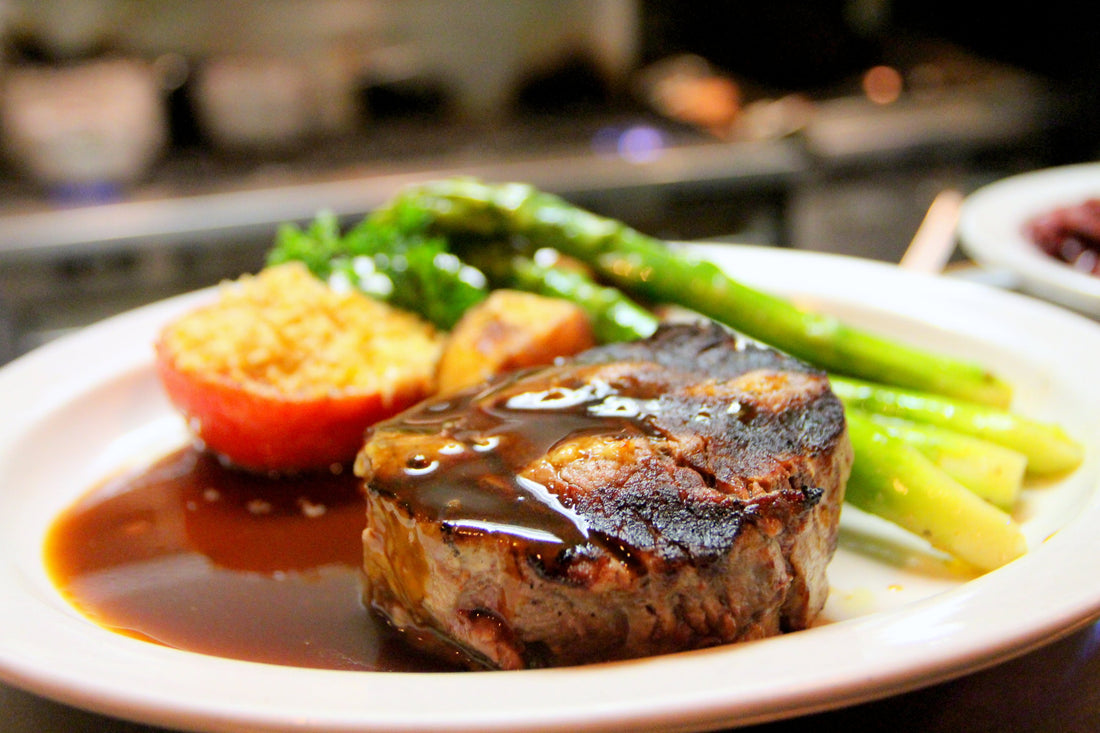The debate continues to rage on: Which is better between the natural gas grill and the propane grill? Proponents for each side fiercely put forward their arguments and swear they would never barbeque any other way.
In this edition, we're going to fight on behalf of the natural gas grill corner. We'll look at the virtues of grilling with one of these beasts, compare them to propane grills and teach you how to use one like a pro.
What Are the Advantages of Cooking With Gas?
Ever heard the saying, now you're cooking with gas? Many advocates for the natural gas grill state the fact you can taste the meat, veg or whatever it is you grill better. Because propane burns so hot, char is usually the primary flavor on a propane-grilled food item. With a natural gas grill, the taste of quality produce can shine through. It's a matter of taste, really.
There are many of the benefits that natural gas grillers shout about. Let's look at the main ones:
- Enjoy Fewer Fumes in the Yard
Propane burns hot, which means lots of smoke and fumes. When you invite people over to your home, they like to make an effort and dress nicely. Propane will leave guests smelling like propane fumes for sure. Although this might add to the atmosphere for some, many people would prefer less billowing smoke when they're hosting a barbeque.
- Connect to Your Home Supply
If you already have a connection to the gas mains in your home, installation should be straightforward. Refilling a propane tank involves effort, and there's the risk you might be caught short, and it runs out at a crucial moment. With a natural gas grill, the supply is always hooked up, and you don't need to consider whether it's running out soon. We could all use one less thing to worry about.
- Ease of Use
You might need some help initially connecting the grill to the gas pipe. However, once the natural gas grill is installed, you just switch it on and off. There's no need to drag propane cylinders around or worry about connecting and disconnecting it each time it requires a refill.
- Save Money in the Long-Term
Although the upfront cost of rerouting the gas might make the purchase seem expensive, it's incredibly likely that you'll save money in the long-term. Natural gas itself is much cheaper than propane in most states because it occurs naturally there. Natural gas grills can save a household quite a lot of money over just a year.
- Lower Environmental Impact
Natural gas doesn't burn as ferociously as propane, which means throwing less dangerous emissions out into the atmosphere. In the short term, it's better for you and your family's lungs to use natural gas because it's cleaner burning. However, it also makes more sense to use it when you're looking at the bigger picture. If more people switch over to natural gas, the planet will be a little bit safer.
How to Use and Store a Natural Gas Grill
Now you've got your natural gas grill set up and ready, here's a step by step guide to using one like a boss:
- Open the lid before switching on the gas to prevent a build-up
- Turn first the burner up and press the ignite button
- Once the first burner is roaring, turn the others up
- Close the lid so it can get good and hot — around 15 minutes
- Place food evenly on the grill so it cooks thoroughly
- Resist the temptation to open up the grill and peek inside and only flip once
- Only flip if you're not met with resistance when you pull at the food with tongs
- Remove the food from the grill once it's done
- Switch off all knobs
- Turn the natural gas grill off at the mains
- Use a scraper or grill brush to remove excess debris from the top of the grill
- Only shut the lid once the entire grill is cool
Storage is simple; there are four main things to take into consideration:
- Ensure the gas is off at the mains
- Coat metals parts, such as the burner, with cooking oil to repel moisture and prevent rust
- Wrap the burner in plastic to protect it from creepy crawlies and the elements
- Get a tarpaulin cover if you live in an area with bad weather and the grill isn't sheltered
How Much Does a Natural Gas Grill Cost?
Outdoor natural gas grills come in a variety of price ranges, from around $900 up to approximately $16,000.
Natural Gas Grills vs. Propane Grills
When directly comparing a natural gas grill with a propane grill, we think the natural gas grill edges out on top overall. However, it's so close that it comes down to a matter of personal taste. Here are a few side-by-side comparisons to help everyone else make their minds up:
- Propane is more expensive than natural gas, but it's often cheaper upfront to get a propane grill.
- Natural gas means fewer emissions, but the propane burns hotter and stronger for that classic charred taste.
- People who prefer natural gas grills will say that the lack of charred taste lets excellent ingredients sing.
- The initial set up of a natural gas grill is trickier, but overall you'll need to spend more time detaching and attaching the propane tank to fill it up. Once the natural gas grill is ready, you don't need to mess around with it at all.
- Most natural gas grills need to stay in one place because they're connected to the mains, whereas you can generally move a propane grill wherever you please.
Are There Any Disadvantages to Gas Grills?
Fans of propane grills will cite the following reasons for their preference:
- Propane grills burn hotter for a tastier flavor.
- A natural gas grill is confined to one spot in the yard, so you can't move it according to the season or time of day.
- Propane grills don't tend to require a tricky set-up.
Get the Grill of Your Dreams
If you've decided that the natural gas grill is the one for you, head over to BBQ Island and choose the perfect model for your barbequing requirements.

